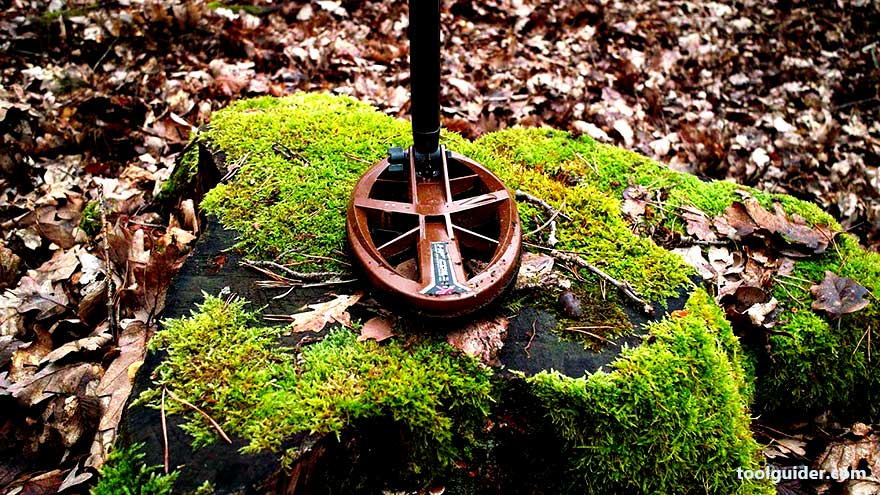When it comes to hobbies, metal detecting is very addicting yet a neglected one. It’s probably due to the misconceptions and lack of information about this highly adventurous and educating pastime.
This hobby has a value from both historical and economic point of view. And let’s also mention the rush of discovering unpredictable items with historical or emotional values that attracts people of all ages.
But like all the other good stuff in this world, metal detecting has its own issues. Many detectorists simply lack the commonsense and ignore all the rules and ethics of metal detecting; therefore cause vandalism, damages to historical, private and public properties and other serious problem while doing such an innocent act of metal detecting.
Also there so many questions that need to be answered like is it legal to metal detect? How to achieve metal detecting permission?
So in this journey, I am going to commit myself in explaining all the rules and legal issues of this hobby to ensure a responsible and principled practice of metal detecting for all the detectorists out there, the old, the new or the future detectorists alike.
Contents [show]
Is it legal to Metal Detect?
First thing first, do you need permission to metal detect? The right answer is that it varies from the public to private properties, states to states and countries to country.
For example, in the UK, the finders are encouraged to collaborate with government-appointed archeologists and the property owner by giving them a proper share.
So metal detecting in England alleviate the pain of “giving your findings away” better compared to the US law of federal government being the owner of the every important “lost and founds”.
It’s also illegal in the US to dig up monuments. Apart from the “finders keepers rule”, both the US and UK have similar rulings concerning trespassing and taking care of sites. In the US, not all of its states have the same laws and regulation.
For example, Texas has a more forgiving law for metal detecting than California which basically has separate sets of rules for its parks, beaches, private properties, and whatnot.
Also, California, Florida and some other states take the ARPA, which is Archeological Resources Preservation, very seriously. These states generally imply the rule of supervised metal detecting in the beaches.
Metal Detecting On the Beach Laws
While we are at it, let’s know more about detecting in beaches. Most of the time, the general rules of metal detecting are simple.
No harm should be done to the marine lives, no invasion of privacy, no usage of chemical and mechanism that is harmful to the people presented at the beach.
The state of Florida has some special rules like the objects that have been over 50 years in the water, are legal properties of Florida government.
So it will be illegal to retract object like those unauthorized. And it is also important to get metal detecting permission at least 14 to 15 days ahead of time.
Permissions: How to and When to?
Speaking of permissions, it can be a bit hectic if one is not aware of the rules. And knowing those rules are troublesome too because every place has its own rules and regulation.
So it is best to research prior engaging on metal detecting. The best way is to go to the nearest Archeological office to learn about all the to-do and not to do’s.
Generally, the officials will provide you with the list of sites that requires permission and the list of sites that don’t. Sometimes you may wonder about places to metal detect without permission or good places to go metal detecting near me.
Usually, the public schools, parks and the older part of the city are the metal detecting sites near you that won’t require permission. But the private properties are off-limit unless you receive a permit from the property owner.
Metal Detecting Course
Now that you know about almost all the rules and laws of metal detecting, the next step is to learn about metal detecting itself.
For doing it the right way, it is very crucial to have knowledge about metal detecting, metal detectors and of course, the metals. Nowadays, many online courses have been opened to educate enthusiasts all about metal detecting.
Garrett metal detecting, HobbyHelp.com, MinersDen.com are some of the famous websites that offer courses on metal detecting. If you are from the US, England or Scotland, I’m sure you will easily find some local metal detecting courses.
Conclusion
Like all the other problems in the world, complains that occur because of metal detecting is always the irresponsibility. As a detectorist myself, I think the art of metal detecting loses its sentiment if we abuse the power of metal detectors. It’s always better to leave the digging site better than it was before. I hope this article is informative enough to raise awareness about responsible and ethical metal detecting and its answered the question, “is it legal to metal detect?”.

I love all things tech, and I wear many hats – tech lover, business starter, digital marketer, and blogger. I know the ins and outs of Digital Marketing, SEO, SEM, SMM, and how to generate leads. My goal? Making things simple for you with clear guides and reviews. I stumbled upon WordPress while creating my first business site, and I fell in love with it right away. When I’m not building websites, creating content, or boosting clients’ online efforts, I’m focused on staying healthy, hanging out with family, and exploring the world. Connect with me on Facebook, Twitter, Linkedin, or read my complete biography.

